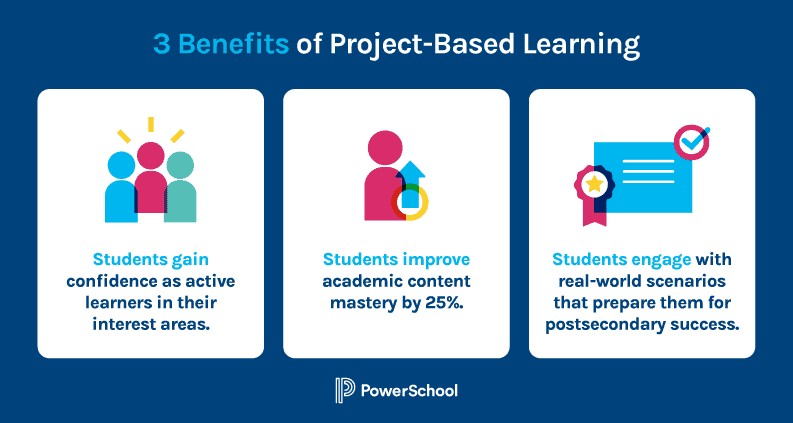The Benefits of Project-Based Learning
Project-based learning has emerged as a powerful educational approach that bridges the gap between theory and practice, offering learners a dynamic and immersive way to develop skills that are directly applicable to real-world challenges. In contrast to traditional methods that often rely on passive absorption of information, project-based learning places students in the driver’s seat, encouraging them to explore, experiment, and engage with content through meaningful tasks. This shift in pedagogy is particularly relevant to business education, where the ability to apply knowledge in complex, unpredictable environments is a key determinant of success.
One of the most compelling aspects of project-based learning is its emphasis on problem-solving. Rather than memorizing concepts for exams, learners are tasked with addressing authentic issues that require critical thinking, collaboration, and creativity. For example, a business student might be asked to develop a marketing strategy for a local startup, requiring them to conduct market research, analyze consumer behavior, and present actionable recommendations. This kind of experience not only deepens understanding but also builds confidence. Students begin to see themselves as capable contributors, not just passive recipients of information.
The collaborative nature of project-based learning also mirrors the dynamics of modern workplaces. In business, few tasks are completed in isolation. Teams must navigate diverse perspectives, manage interpersonal dynamics, and coordinate efforts toward shared goals. Project-based learning cultivates these competencies by placing students in group settings where communication, negotiation, and leadership are essential. The process of working through disagreements, aligning on priorities, and delivering results teaches lessons that no textbook can replicate. It prepares learners for the nuanced realities of organizational life, where success often hinges on the ability to work effectively with others.
Another benefit lies in the development of self-directed learning habits. Projects typically span several weeks or months, requiring students to manage their time, set milestones, and adapt to evolving circumstances. This autonomy fosters a sense of ownership and accountability. Learners begin to understand the importance of planning, persistence, and flexibility—traits that are invaluable in business environments characterized by rapid change and uncertainty. When students take responsibility for their learning journey, they become more resilient and resourceful, better equipped to navigate the challenges of professional growth.
Project-based learning also enhances the relevance of education. By connecting academic content to real-world applications, it helps students see the value of what they’re learning. This relevance boosts engagement and motivation, as learners are more likely to invest effort in tasks that feel meaningful. In business education, this might involve analyzing financial data to make investment decisions, designing prototypes for new products, or developing sustainability plans for organizations. These projects not only reinforce theoretical knowledge but also provide tangible outcomes that students can showcase to potential employers, adding depth to their resumes and portfolios.
Assessment in project-based learning is another area where the benefits are clear. Traditional exams often measure rote memorization and isolated skills, but projects allow for a more holistic evaluation of student performance. Educators can assess not just the final product but also the process—how students approached the problem, collaborated with peers, and responded to feedback. This comprehensive view provides richer insights into a learner’s capabilities and growth areas. In business contexts, where performance is rarely judged by a single metric, this kind of multifaceted assessment aligns more closely with professional standards.
Moreover, project-based learning encourages innovation. When students are given the freedom to explore different approaches and experiment with ideas, they often produce solutions that are both creative and practical. This spirit of innovation is essential in business, where differentiation and adaptability are key competitive advantages. By fostering an environment where risk-taking is encouraged and failure is viewed as a learning opportunity, project-based learning helps students develop the mindset needed to thrive in entrepreneurial and intrapreneurial roles.
The integration of technology further amplifies the benefits of project-based learning. Digital tools enable students to collaborate across geographies, access vast amounts of information, and present their work in compelling formats. For instance, a team might use project management software to coordinate tasks, data visualization tools to present findings, and video platforms to pitch their ideas. These experiences not only enhance technical proficiency but also prepare students for the digital demands of contemporary business practice.
Ultimately, the value of project-based learning lies in its ability to produce learners who are not only knowledgeable but also capable. It transforms education from a passive experience into an active journey of discovery, equipping students with the skills, habits, and mindset needed to succeed in complex, fast-paced environments. In business, where the ability to adapt, collaborate, and innovate is paramount, project-based learning offers a blueprint for developing the next generation of leaders and problem-solvers. It’s not just a teaching method—it’s a preparation for life.







